INTERNACIONAL
NATO allies clash after Russian jets breach airspace, testing alliance resolve
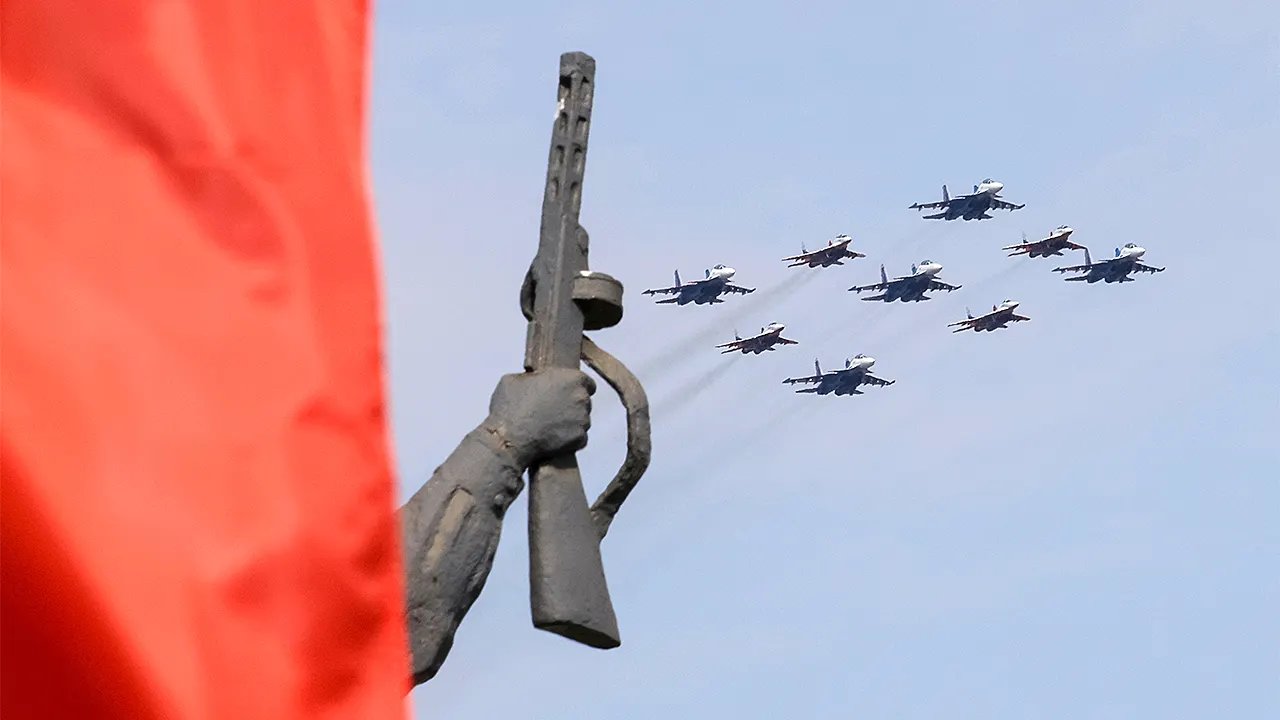
NEWYou can now listen to Fox News articles!
EXCLUSIVE: Recent Russian incursions into NATO airspace have sharpened divisions inside the alliance over how to respond, exposing both the strength and the limits of collective defense.
Secretary General Mark Rutte clashed with Estonian Prime Minister Kristen Michal last week after Estonia invoked NATO’s Article 4 clause, which triggers consultations when a member feels its security is threatened.
According to three European officials granted anonymity to speak freely, Rutte argued that repeated invocations risked diluting the treaty’s force. One source said he even raised his voice at Michal, warning that NATO must be cautious about how often it signals alarm.
Rutte argued that if Article 4 were invoked every time Russia violated sovereignty — through drone incursions, fighter jets, cyberattacks and more — it would quickly lose impact, according to the officials.
DENMARK CONSIDERS TRIGGERING NATO ARTICLE 4 AFTER DRONES FLY OVER AIRPORTS
NATO Secretary General Mark Rutte in front of NATO and Ukraine flags (Thomas Peter/Reuters)
A NATO spokesperson confirmed Rutte and Michal spoke Friday and said the secretary general «has supported Estonia throughout the process.»
Rasmus Ruuda, director of the Government Communication Office of Estonia, told Fox News Digital Rutte «expressed support for Estonia and the Prime Minister thanked NATO for its actions.»
«Article 4 is just a signal that we’re taking note of what happened,» said Giedrimas Jeglinskas, a Lithuanian member of parliament and former NATO assistant secretary general. «We can be invoking Article 4 every week, and I think that only weakens us, because we’re unable to truly respond to that aggression that Russia is sort of throwing at us.»
The tension comes after a series of provocative moves by Moscow. Last month, missile-carrying Russian MiG-29s flew into Estonian territory, following an earlier breach of Polish airspace by 19 drones and repeated incursions over Romania. In Poland, jets scrambled to intercept the drones, shooting some of them down. It marked the first time since World War II that Polish armed forces mobilized to engage an airborne threat over their homeland.
The Russian jets in Estonia were eventually escorted out of its territory by Italian F-35s. Estonia’s Article 4 request followed Poland’s own invocation days earlier, prompting another round of consultations in Brussels.
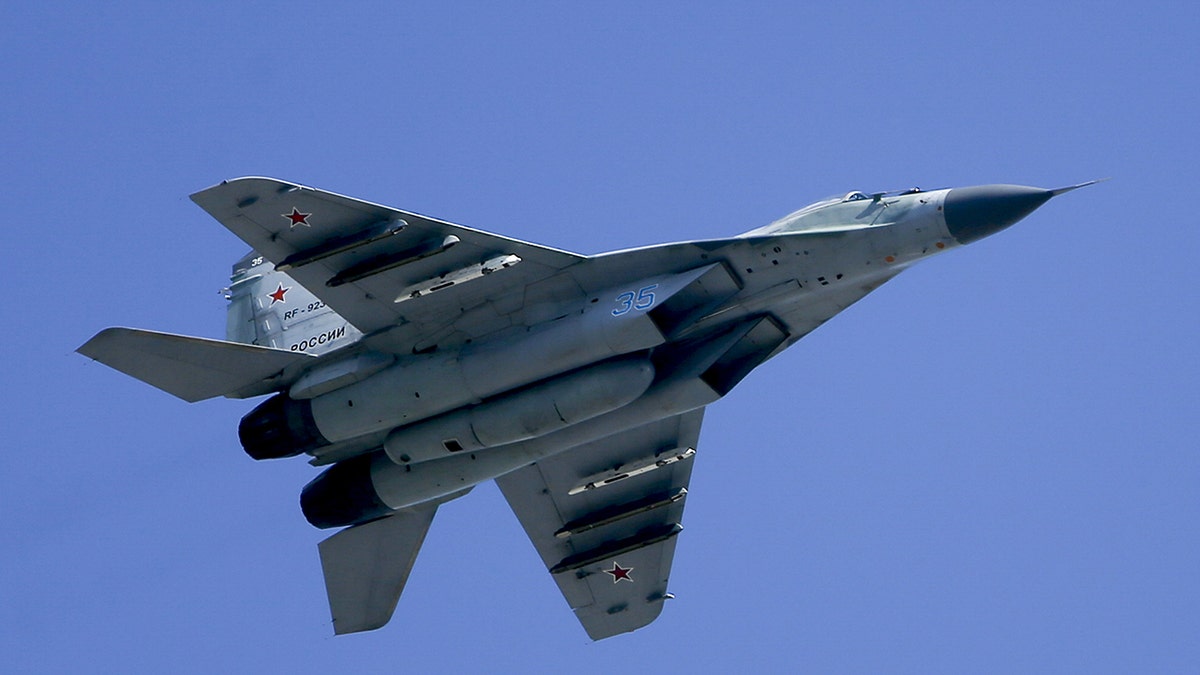
MiG-29 jet fighters perform during a Victory Day parade in Red Square in Moscow on June 24, 2020. (Sefa Karacan/Anadolu Agency via Getty Images)
Since its creation in 1949, Article 4 has been triggered only nine times. NATO’s warning to Russia after the Estonian request was blunt: any further breaches would be met with «all means» of defense. Estonia’s defense minister said his nation was prepared to shoot down Russian planes violating airspace «if there is a need.»
But Jeglinskas said signaling without consequence risks leaving the alliance trapped.
«We’re happy to do Article 4 every other day, but so what? What’s next?» he said. «The real question is what happens when the jets actually enter our airspace.»
The debate cuts to a deeper question: what constitutes a «need» to shoot down Russian jets? How can Russia be deterred without stumbling into direct war?
«The last thing we want is to have NATO get drawn into a war with Russia,» a senior State Department official told Fox News Digital. «God knows how that ends.»
«Almost all wars … they don’t necessarily start with a big bang,» the official went on. «They start with an escalation, and then somebody feels they need to respond to this, and then you just get in a toxic spiral.»
‘PUTIN IS PUSHING THE LIMITS’: EASTERN ALLIES WARN TRUMP NOT TO PULL US TROOPS
The United States has promised to defend «every inch» of NATO while pressing Europe to bear more of its own defense burden. Washington’s mixed signals have only complicated matters.
Trump administration officials long favored reducing the U.S. troop presence in Europe. But President Donald Trump recently delivered one of the starkest warnings to Moscow, declaring that NATO states should shoot Russian aircraft down if they incur on their territory.
Jeglinskas said the statement resonated across the Baltic States. «What was really helpful was that President Trump was very clear,» he said. «That gives us confidence we’re on the right track, and we really appreciate the support.»
Still, allies remain divided on whether to escalate. Some warn that Eastern Europe cannot credibly threaten retaliation without an American security guarantee. Others argue that deterrence depends on showing Russia its incursions carry a cost.
«If we really want to send a proper message of deterrence to Russia, we need to be prepared to use kinetic force,» Jeglinskas said. «That means neutralizing those jets — shooting them down or finding other ways to impose consequences — so Russia actually feels the cost of its incursions. That hasn’t happened yet, and it leaves us vulnerable.»
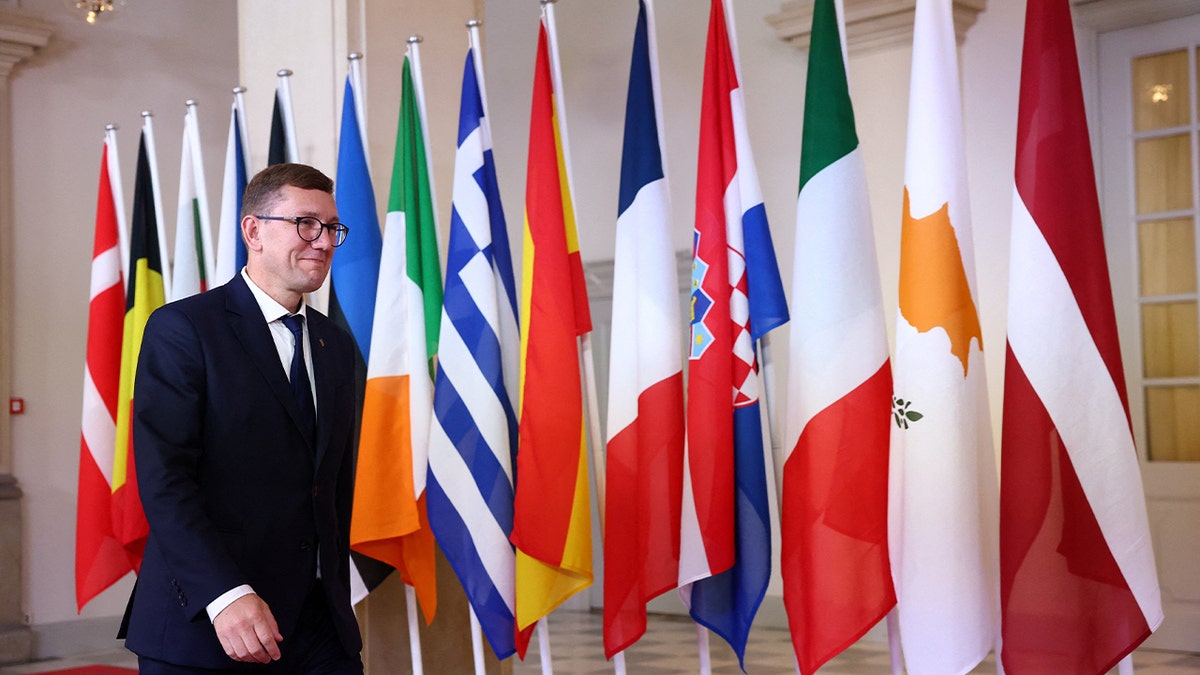
Estonia’s Prime Minister Kristen Michal led his country in invoking Article 4 after Russian jet incursions. (Piroschka van de Wouw/Reuters)
The airspace disputes now extend beyond fighter jets. European Union members are meeting in Copenhagen this week to discuss shoring up air defenses after a wave of drone sightings. Denmark briefly shut down its airspace following mysterious drone activity, while Lithuania’s Vilnius airport and Norway’s Oslo airport also reported disruptions. Drones have even been spotted over Germany’s northern state of Schleswig-Holstein.
«We are not at war, but we are no longer at peace either. We must do much more for our own security,» German Chancellor Friedrich Merz said in Düsseldorf.
NATO jets scrambled to intercept drones over Poland, but the response underscored a growing mismatch: deploying multi-million dollar fighters to counter small, unmanned aircraft is neither efficient nor sustainable.
RUSSIA SHIFTS FROM TALK TO ACTION, TARGETING NATO HOMELAND AMID FEARS OF GLOBAL WAR
«NATO remains the most crucial element of our security equation,» Jeglinskas said. «It’s the backbone through which our security is viewed. There’s really no doubt about NATO’s political will and its capability to defend its territory, but warfare is changing — and the question now is, has NATO adapted to the new way of war that is seeping through the borders of Ukraine?»
Jeglinskas warned that neither NATO nor the Baltic States have done enough. «The Polish incursion signified that NATO is not fully ready to counter these threats,» he said. «Scrambling jets is a tremendous economic mismatch. If these kinds of attacks become swarms, it’s not sustainable.»
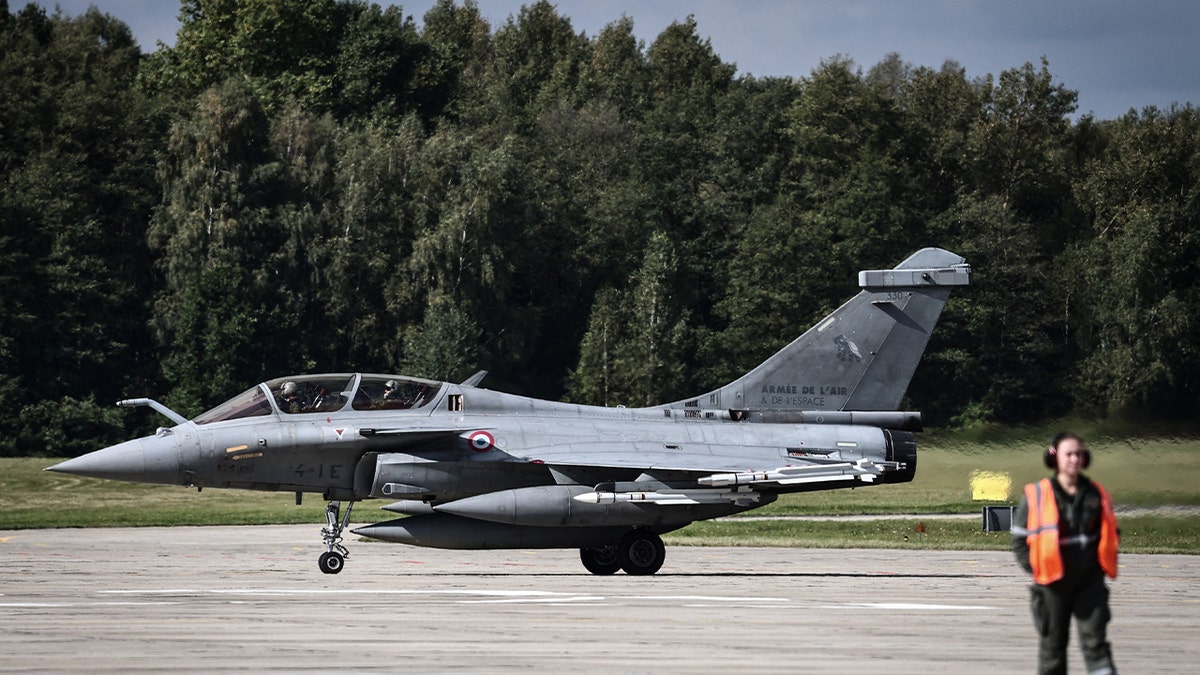
A French Rafale fighter jet is seen after landing following a joint mission with Polish F16s at an air base in Minsk Mazowiecki on September 17, 2025, as part of the Eastern Sentry mission (THIBAUD MORITZ/AFP via Getty Images)
To address mounting threats, NATO last month launched Operation Eastern Sentry, reinforcing its presence on Europe’s eastern flank. Jeglinskas welcomed the move but said gaps remain.
«Jets are very important, but more jets don’t mean we’re more secure from low-altitude drones,» he said. «The question is: do we have sensors that can detect what’s happening from the ground up to a kilometer into our airspace? We don’t see that. It’s like a dead space.»
Jeglinskas called for stronger short- and medium-range radar, as well as layered defenses akin to Israel’s Iron Dome, capable of intercepting drones with both kinetic and electronic means.
CLICK HERE TO DOWNLOAD THE FOX NEWS APP
«NATO’s response is commendable,» he said, «but it’s not enough. You need technical know-how, the right capabilities, and systems that are truly integrated if you want to make this work.»
For now, NATO remains caught between signaling resolve and acting on it. As Russia continues to test the alliance’s borders, Jeglinskas and other Eastern European officials warn that credibility is at stake. The next incursion, they argue, may demand more than words.
nato,russia,the european union,conflicts defense,vladimir putin,world,politics
INTERNACIONAL
De Fujimori a José Jerí: los presidentes de Perú investigados y expulsados del poder
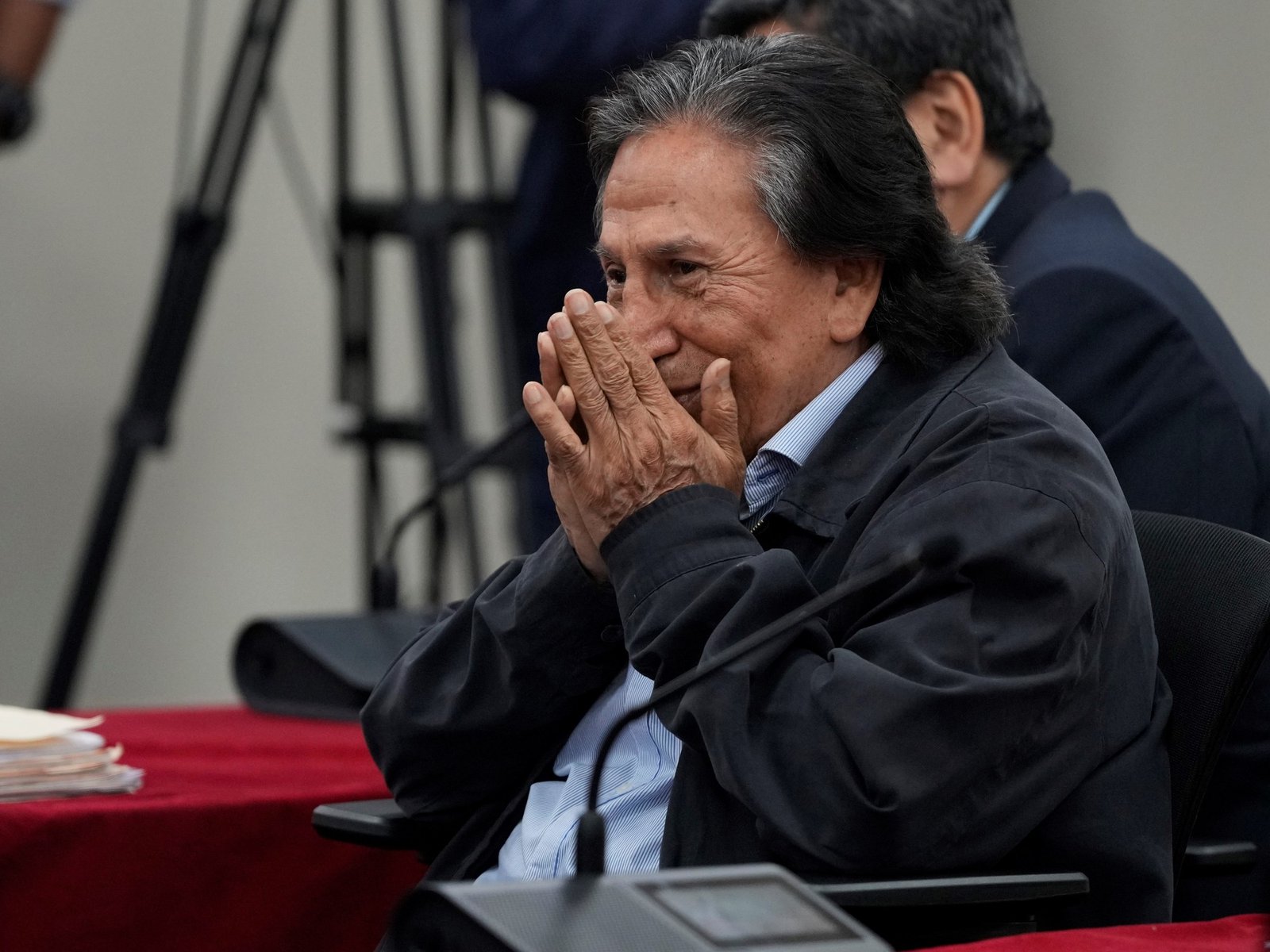
1. Alberto Fujimori (1990-2000)
2. Alejandro Toledo (2001-2006)
3. Alan García (1985-1990 y 2006-2011)
4. Ollanta Humala (2011-2016)
5. Pedro Pablo Kuczynski (2016-2018)
6. Martín Vizcarra (2018-2020)
7. Pedro Castillo (2021-2022)
8. Dina Boluarte
9. José Jerí
INTERNACIONAL
US moves to expand missiles in Philippines, putting China within range
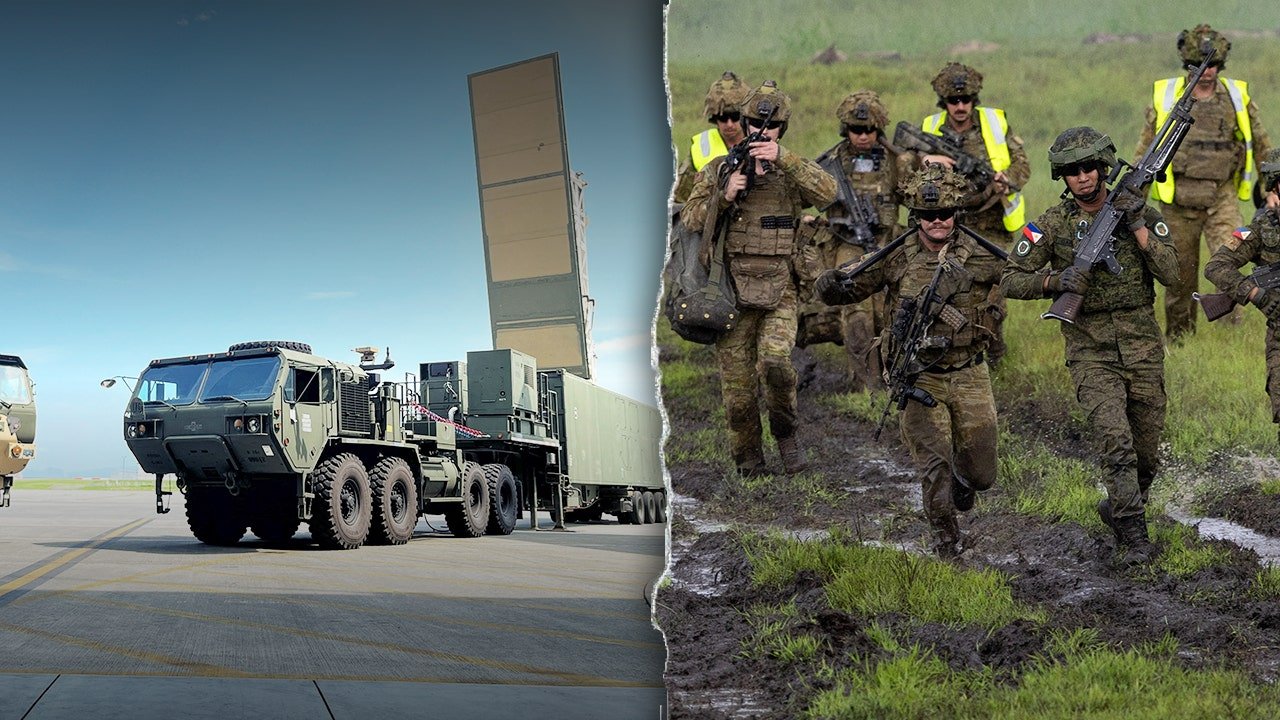
NEWYou can now listen to Fox News articles!
The U.S. is preparing to expand the deployment of advanced missile systems in the northern Philippines, placing additional long-range strike capability within range of key Chinese military assets and reinforcing Washington’s effort to counter Beijing’s growing assertiveness across the Indo-Pacific.
U.S. and Philippine officials announced plans to increase deployments of «cutting-edge missile and unmanned systems» to the treaty ally, as both governments condemned what they described as China’s «illegal, coercive, aggressive and deceptive activities» in the South China Sea.
The move comes as confrontations between Chinese and Philippine vessels have intensified in disputed waters and as Beijing continues to pressure Taiwan, raising the stakes across the region’s most sensitive flashpoints.
It builds on the deployment of the U.S. Army’s Typhon missile system in northern Luzon, Philippines, a ground-based launcher capable of firing Tomahawk cruise missiles that can travel more than 1,000 miles.
TAIWAN UNVEILS $40B DEFENSE SPENDING PLAN TO COUNTER CHINA MILITARY THREAT OVER NEXT DECADE
The U.S. is preparing to expand the deployment of advanced missile systems in the northern Philippines. (Tim Kelly/Reuters)
Tomahawks can travel more than 1,000 miles — a range that, from northern Luzon, Philippines, places portions of southern China and major People’s Liberation Army (PLA) facilities within reach. The positioning also allows the U.S. and Philippine militaries to cover large swaths of the South China Sea and key maritime corridors connecting it to the broader Pacific.
The U.S. first deployed the Typhon system to Luzon, Philippines, in April 2024. An anti-ship missile launcher known as the Navy Marine Expeditionary Ship Interdiction System was deployed in 2025 to Batan Island in the northernmost Philippine province of Batanes.
That island faces the Bashi Channel, a strategic waterway just south of Taiwan that serves as a critical transit route for commercial shipping and military vessels moving between the South China Sea and the Western Pacific. Control of that channel would be vital in any potential Taiwan contingency.
BIPARTISAN HOUSE CHINA PANEL SLAMS BEIJING’S TAIWAN DRILLS AS ‘DELIBERATE ESCALATION’

U.S. and Philippine officials announced plans to increase deployments of «cutting-edge missile and unmanned systems» to the treaty ally, as both governments condemned what they described as China’s «illegal, coercive, aggressive and deceptive activities» in the South China Sea. (Eloisa Lopez/Reuters)
Beijing has urged Manila to withdraw the U.S. systems from its territory, but officials under President Ferdinand Marcos Jr. have rejected those demands.
«China has consistently stated its firm opposition to the United States’ deployment of advanced weapons systems in the Philippines. The introduction of strategic and offensive weapons that heighten regional tensions, fuel geopolitical confrontation, and risk triggering an arms race is extremely dangerous. Such actions are irresponsible to the people of the Philippines, to Southeast Asian nations, and to regional security as a whole,» Chinese embassy spokesperson Liu Pengyu told Fox News Digital. «The United States is not a party to disputes in the South China Sea and has no standing to intervene in maritime issues between China and the Philippines.»
«The Taiwan question lies at the very heart of China’s core interests. China’s determination to defend its national sovereignty, security, and territorial integrity is unwavering. Any provocation that crosses red lines on Taiwan will be met with resolute countermeasures, and any attempt to obstruct China’s reunification is doomed to fail,» Liu continued.
Neither side detailed how many additional systems would be sent or whether the deployments would be permanent, but Philippine Ambassador to Washington Jose Manuel Romualdez said U.S. and Filipino defense officials discussed deploying upgraded missile launchers that Manila may eventually seek to purchase.
«It’s a kind of system that’s really very sophisticated and will be deployed here in the hope that, down the road, we will be able to get our own,» Romualdez told The Associated Press.
Romualdez stressed that the deployments are intended as a deterrent.
CHINA WARNS OF RISING WAR RISK AFTER HISTORIC US ARMS SALE TO TAIWAN
«It’s purely for deterrence,» he said. «Every time the Chinese show any kind of aggression, it only strengthens our resolve to have these types.»
China repeatedly has objected to the missile deployments, warning they threaten regional stability and accusing Washington of trying to contain its rise.
In a joint statement following annual bilateral talks in Manila, the U.S. and the Philippines underscored their support for freedom of navigation and unimpeded commerce in the South China Sea — a vital global trade artery through which trillions of dollars in goods pass each year.

Members of the Chinese People’s Liberation Army (PLA) Navy march during the rehearsal ahead of a military parade to mark the 80th anniversary of the end of World War Two, in Beijing, Sept. 3, 2025. (Maxim Shemetov/Reuters)
«Both sides condemned China’s illegal, coercive, aggressive and deceptive activities in the South China Sea, recognizing their adverse effects on regional peace and stability and the economies of the Indo-Pacific and beyond,» the statement said.
China claims virtually the entire South China Sea despite an international tribunal ruling in 2016 that invalidated many of its sweeping claims. In recent years, Chinese coast guard and maritime militia vessels have clashed repeatedly with Philippine ships near disputed shoals, including Second Thomas Shoal.
HIGH STAKES ON THE HIGH SEAS AS US, CHINA TEST LIMITS OF MILITARY POWER
The expanded missile deployments also come as the Pentagon balances rising tensions in multiple theaters. In recent weeks, the USS Abraham Lincoln carrier strike group — which had been operating in the Indo-Pacific — was redirected toward the Middle East as the U.S. moved to bolster its posture amid escalating tensions with Iran.
The deployments also reflect a broader U.S. effort to strengthen its military posture along the so-called «first island chain» — a string of territories stretching from Japan through Taiwan and the Philippines that forms a natural barrier to Chinese naval expansion into the Pacific.
Washington has deepened defense cooperation with Manila under the Enhanced Defense Cooperation Agreement, expanding U.S. access to Philippine bases, including sites in northern Luzon close to Taiwan.
China in May released a national security white paper criticizing the deployment of an «intermediate-range missile system» in the region — widely viewed as a reference to the U.S. Typhon launcher in the Philippines. The document accused unnamed countries of reviving a «Cold War mentality» and forming military «small groups» that aggravate regional tensions.
For U.S. planners, dispersing mobile, land-based missile systems across allied territory complicates Beijing’s military calculus. Instead of relying solely on ships and aircraft, the U.S. can field ground-based systems that are harder to track and capable of holding Chinese naval and air assets at risk.
CLICK HERE TO DOWNLOAD THE FOX NEWS APP
For Beijing, however, such deployments reinforce its long-standing claim that the United States is encircling China militarily.
As tensions simmer in both the South China Sea and around Taiwan, the positioning of long-range U.S. missile systems on Philippine soil underscores how the strategic competition between Washington and Beijing is increasingly being defined by geography — and by which side can project credible deterrent power across it.
china,pacific,conflicts defense,defense
INTERNACIONAL
Por qué el arroz con huevo brinda los mismos beneficios que la carne roja en proteínas, según los expertos

La combinación de arroz con huevo, consumida a diario en numerosos hogares y comedores, se consolidó como una de las alternativas más eficientes y accesibles en términos nutricionales. Personas de diferentes edades y contextos la eligen por su practicidad, su bajo costo y su capacidad para aportar proteínas completas y energía sostenida. El interés por este plato creció especialmente entre quienes buscan una alimentación saludable y balanceada.
Tradicionalmente, el arroz con huevo fue visto como una solución ante la escasez o como un recurso rápido en la cocina. Sin embargo, los avances en la ciencia de los alimentos permitieron demostrar que esta mezcla supera a la carne roja en varios aspectos nutricionales. Deportistas, estudiantes y familias encuentran en este plato una fuente de proteínas, vitaminas y minerales esenciales para el funcionamiento del organismo.
Especialistas en nutrición y ciencia de los alimentos sostienen que el valor de esta combinación radica en la calidad de sus proteínas y en su aporte energético. Según investigaciones recientes citadas por O Globo, el arroz aporta energía rápida y fibra, mientras que el huevo completa el perfil de aminoácidos, logrando una proteína de alta calidad.
La combinación de arroz con huevo ofrece una proteína de alto valor biológico, comparable a la de la carne roja en términos de calidad y aprovechamiento por el organismo. Según la Organización de las Naciones Unidas para la Alimentación y la Agricultura (FAO), mezclar cereales como el arroz con huevo permite obtener todos los aminoácidos esenciales en proporciones óptimas, lo que hace que esta alternativa cumpla la misma función estructural y reparadora que las proteínas animales más reconocidas.

Esta equivalencia proteica, sumada a su bajo costo y accesibilidad, convierte al arroz con huevo en una opción eficiente y saludable para quienes buscan cubrir sus necesidades nutricionales sin recurrir necesariamente a la carne roja.
De acuerdo con O Globo, la clave nutricional del arroz con huevo reside en el concepto de Valor Biológico (VB). El arroz carece de lisina, un aminoácido esencial, pero el huevo lo contiene en cantidad suficiente para complementar el cereal. Así, el organismo aprovecha mejor las proteínas, que se utilizan para reparar tejidos, producir hormonas y mantener la masa muscular.
Diversos estudios comparativos muestran que la eficiencia de la proteína formada por arroz y huevo iguala o supera la de la carne roja. Esta combinación también resulta más económica y accesible, lo que favorece su inclusión en la dieta diaria. Quienes practican actividades físicas intensas o deportes de resistencia eligen el arroz con huevo como aliado estratégico por su fácil digestión y sus beneficios de recuperación muscular.
Bruno Román, especialista en ciencia de los alimentos, explicó al portal Miyeilis Flores: “El arroz con huevo es como un juego de Lego: el huevo coloca las piezas que faltan al arroz para construir salud”. Según Román, la sinergia entre ambos alimentos representa un ejemplo de optimización nutricional sin necesidad de recurrir a suplementos.

El arroz con huevo puede optimizarse mediante técnicas sencillas en la cocina. Una de ellas es el choque térmico: cocinar el arroz con anticipación, dejarlo enfriar en la heladera y luego recalentar suavemente antes de consumirlo. Según recomendaciones de expertos en nutrición, este proceso genera almidón resistente, una fibra que se absorbe lentamente y favorece la microbiota intestinal.
En materia de seguridad alimentaria, se aconseja lavar el arroz varias veces hasta que el agua salga transparente y utilizar suficiente agua en la cocción para reducir la presencia de arsénico, mineral que el cereal absorbe del suelo. El consumo responsable y cuidadoso garantiza un plato seguro y saludable para todos los integrantes de la familia.
Para evitar picos de glucosa en sangre, la sugerencia es acompañar el arroz con huevo con una porción de vegetales verdes. Según especialistas en endocrinología citados por O Globo, la fibra de estos vegetales ralentiza la absorción del almidón y ayuda a mantener estables los niveles de azúcar. Esta recomendación resulta especialmente útil para personas con diabetes o que buscan controlar el peso corporal.

El equilibrio en las proporciones de arroz y huevo es fundamental para obtener el máximo beneficio nutricional. De acuerdo con los expertos, la relación ideal consiste en media taza de arroz por cada huevo. Este balance evita el exceso de carbohidratos y asegura un buen aporte proteico, necesario para la regeneración y el crecimiento de los tejidos.
La cocción del huevo también requiere atención. Evitar el calor excesivo que dora las bordes previene la degradación de proteínas y la oxidación de las grasas saludables de la yema. Así, el valor nutricional se mantiene intacto y el plato conserva su eficacia como fuente de energía y nutrientes.
El arroz con huevo admite múltiples variantes según los objetivos personales y las costumbres regionales. Algunas personas añaden verduras frescas, hierbas o especias para enriquecer el sabor y sumar nutrientes. Otras prefieren incorporar aceite de oliva o semillas para aumentar el contenido de ácidos grasos saludables, siempre cuidando la moderación y el equilibrio.

El arroz con huevo no solo destaca por su valor nutricional, sino también por su bajo costo y su versatilidad en la cocina. Esta preparación permite alimentar a grandes grupos familiares y se adapta tanto al desayuno como al almuerzo o la cena. Además, constituye una alternativa sostenible en comparación con las carnes rojas, cuyo impacto ambiental resulta considerablemente mayor.
El conocimiento y la difusión de los beneficios del arroz con huevo permiten tomar decisiones alimentarias más informadas. Incorporar esta combinación a la rutina diaria contribuye a la salud individual y colectiva. La simplicidad de los ingredientes y la facilidad de preparación convierten al arroz con huevo en una herramienta clave para una alimentación equilibrada.
Optimizar la preparación y acompañar el plato con vegetales asegura el máximo aprovechamiento de sus ventajas. El arroz con huevo confirma que la nutrición de calidad puede ser accesible, económica y deliciosa.
arroz con huevo

 POLITICA1 día ago
POLITICA1 día agoCristian Ritondo: “Vamos a apoyar la ley de modernización laboral, pero no el régimen de licencias por enfermedad”

 POLITICA3 días ago
POLITICA3 días agoUno de los jefes de la CGT adelantó que convocarán a un paro general por la reforma laboral: “Trabajaremos para que sea una gran huelga”

 POLITICA14 horas ago
POLITICA14 horas agoReforma laboral bomba: menos indemnización, más horas y despidos más fáciles — el cambio que puede sacudir el empleo en Argentina


























